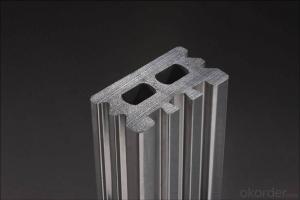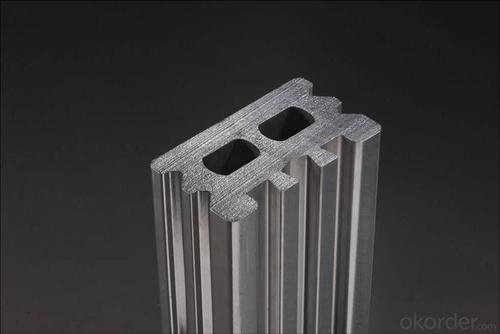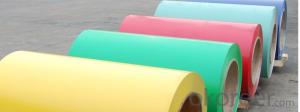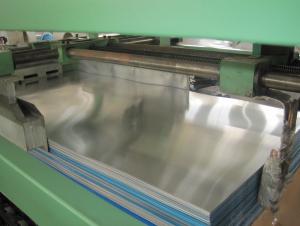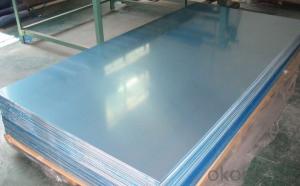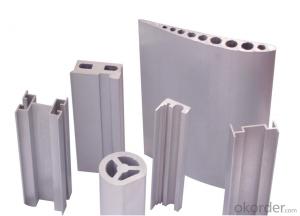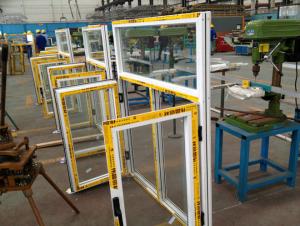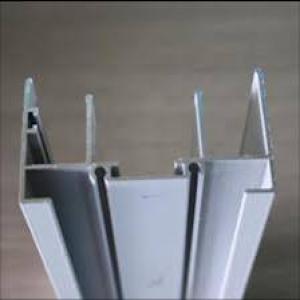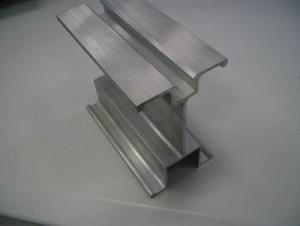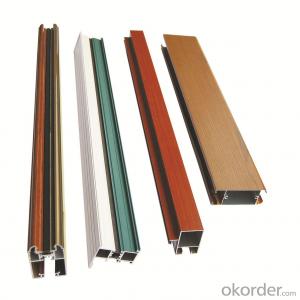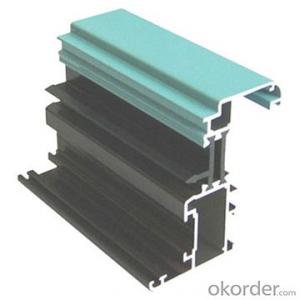Solid Sheets of Aluminum for TV Aluminum Extrusion Profiles
- Loading Port:
- Shanghai
- Payment Terms:
- TT OR LC
- Min Order Qty:
- 5 m.t.
- Supply Capability:
- 1000 m.t./month
OKorder Service Pledge
OKorder Financial Service
You Might Also Like
Specification
1. Structure of Aluminum Extrusion Profiles for TV Parts Description
Aluminum Extrusion Profiles for TV Parts is one semi-finished aluminium material. It is suitable for belt pulley with all cross sections in mechanical engineering and with good erode-proof and strike-proof performance. Its weight is much lower than steel. So many customers choosed aluminium material instead of steel.
2. Specification of Aluminum Extrusion Profiles for TV Parts
Aluminum Extrusion Profiles for TV Parts | |
Main Specification | |
Alloy | AA1xxx (AA1050, AA1060, AA1070, AA1100 etc.) |
AA3xxx (AA3003, AA3004, AA3005, AA3105 etc.) | |
AA5xxx, AA6XXX (AA5052,AA5083, AA5754, AA6061, AA6062 etc.) | |
AA8xxx(AA8011, AA8006 etc.) | |
Temper | H14,H16, H18, H22, H24, H26, H32,O/F, T4, T6, T651 |
Thickmess | 0.01mm-100mm |
Width | 30mm-1700mm |
Standard | GB/T 3880-2006/ASTM |
Special specification is available on customer's requirement | |
3. Application of Aluminum Extrusion Profiles for TV Parts
(1).Interior: wall cladding, ceilings, bathrooms, kitchens and balconies, shutters, doors...
(2).Exterior: wall cladding, facades, roofing, canopies, tunnels,column covers , renovations...
(3).Advertisement: display platforms, signboards, fascia, shop fronts...
4. Feature of Aluminum Extrusion Profiles for TV Parts
Surfact Quality :
Be free from Oil Stain, Dent, Inclusion, Scratches, Stain, Oxide Dicoloration, Breaks, Corrosion, Roll Marks, Dirt Streaks and other defect which will interfere with use,
Mechenical Property:
Chemical Composite and Mechanical Property
5. Certificate of Aluminum Extrusion Profiles for TV Parts
SGS and ROHS(if client request, paid by client), MTC(plant provided), Certificate of Origin(FORM A, FORM E, CO), Bureau Veritas and SGS (if client request, paid by client), CIQS certificate
6. Image of Aluminum Extrusion Profiles for TV Parts
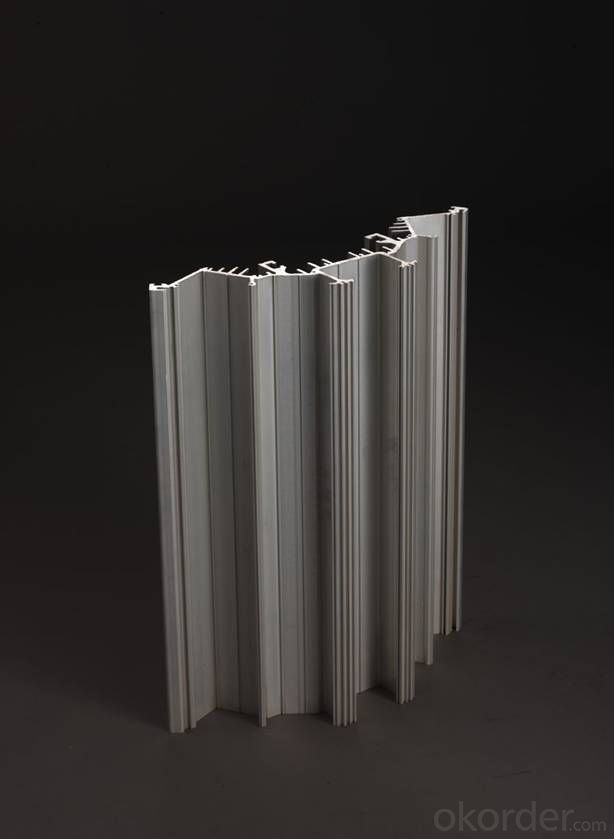
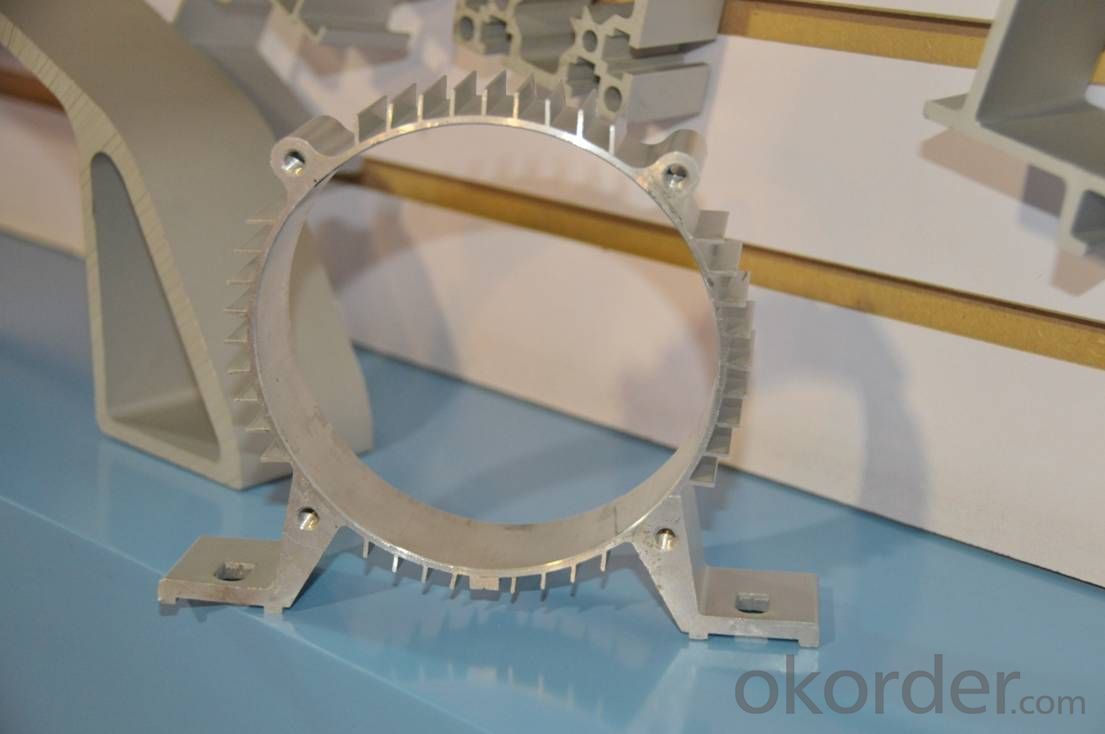
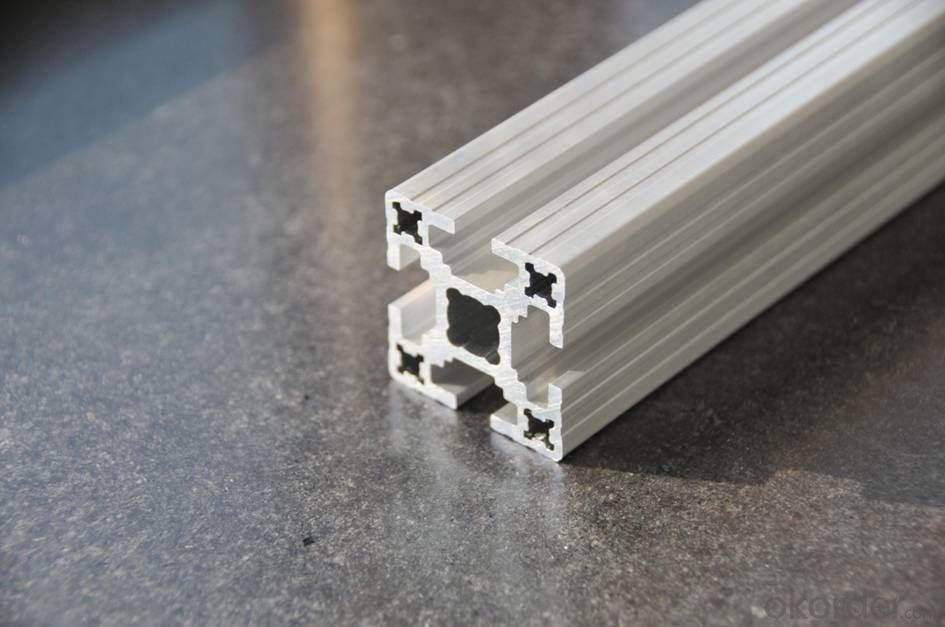
7. Package and shipping of Aluminum Extrusion Profiles for TV Parts
First, plastic cloth with drying agent inside; Second, Pearl Wool ; Third, wooden cases with dry agent , fumigation wooden pallets, aluminum surface could cover blue PVC film
8. FAQ
1) What is the delivery time?
Depends on actual order, around 20 to 35 days
2) What is the QC system:
We have QC staff of 20 persons and advanced equipment, each production is with MTC traced from Aluminum ingot lot.
3) What market do you mainly sell to?
Australia, America, Asia, Middle East, Western Europe, Africa etc
- Q: Is it possible to recycle aluminum sheets multiple times?
- <p>Yes, aluminum sheets can be recycled again and again. The recycling process for aluminum is highly efficient, and it can be recycled indefinitely without losing any quality. This is due to the fact that aluminum retains its properties even after multiple recycling cycles. Each time aluminum is recycled, it can be melted down and reformed into new products, making it a sustainable and environmentally friendly material.</p>
- Q: Are aluminum sheets prone to warping?
- Under certain conditions, aluminum sheets may be susceptible to warping. Unlike steel, aluminum is a relatively soft metal, making it more prone to bending or distorting. However, the extent of warping in aluminum sheets depends on various factors, including sheet thickness, alloy composition, temperature exposure, and applied stress levels. Thinner aluminum sheets have less structural integrity, making them more prone to warping. Conversely, thicker sheets are more resistant to warping due to their increased rigidity. The specific alloy composition of the aluminum sheet also affects its susceptibility to warping. Warping can occur due to temperature fluctuations. High temperatures cause aluminum to expand, and without proper support, it may bend or warp. Similarly, rapid cooling causes contraction, leading to warping. The level of stress applied to aluminum sheets can contribute to warping. Excessive bending, pressure, or unevenly distributed loads can deform the sheet. To minimize warping, it is crucial to handle aluminum sheets carefully, provide adequate support during temperature changes, and avoid applying excessive stress. Additionally, using thicker sheets or selecting alloys with higher tensile strength helps reduce the risk of warping.
- Q: Are aluminum sheets suitable for electrical bus bars?
- Yes, aluminum sheets are suitable for electrical bus bars. Aluminum is a lightweight and cost-effective material that exhibits good electrical conductivity. It is commonly used in various electrical applications, including bus bars, due to its ability to efficiently carry high electrical currents while dissipating heat effectively.
- Q: Can aluminum sheets be used for balcony railings?
- Yes, aluminum sheets can be used for balcony railings. Aluminum is a lightweight and durable material that is commonly used for this purpose due to its resistance to rust and corrosion. Additionally, aluminum can be easily shaped and customized to meet specific design requirements, making it a popular choice for balcony railings.
- Q: What are the different types of surface treatments available for marine-grade aluminum sheets?
- There are several different types of surface treatments available for marine-grade aluminum sheets, each offering unique benefits and characteristics suited for various applications. 1. Anodizing: This process involves creating a protective oxide layer on the surface of the aluminum sheet through electrolysis. Anodized aluminum sheets offer excellent corrosion resistance, improved durability, and can be colored or dyed to enhance aesthetics. 2. Powder Coating: Powder coating involves applying a dry powder onto the aluminum sheet, which is then cured through heat to create a tough and durable coating. Powder-coated aluminum sheets provide excellent resistance to corrosion, abrasion, and fading, while also offering a wide range of color options. 3. Polishing: Polishing removes any imperfections on the surface of the aluminum sheet, resulting in a smooth and shiny finish. This surface treatment is often used for decorative purposes, enhancing the visual appeal of marine-grade aluminum sheets. 4. Brushing: Brushing involves creating a textured surface on the aluminum sheet using abrasive pads or brushes. This treatment is commonly used to hide scratches or imperfections and can provide a unique aesthetic appearance. 5. Chemical Conversion Coating: This treatment involves applying a chemical solution onto the aluminum sheet, which reacts with the surface to form a protective coating. Chemical conversion coatings enhance the corrosion resistance of the aluminum and can also serve as a base for further surface treatments, such as painting. 6. Clear Coating: Clear coating involves applying a transparent protective layer onto the aluminum sheet. This treatment helps to prevent corrosion and oxidation, while also maintaining the natural appearance of the aluminum surface. It is important to consider the specific requirements and intended use of the marine-grade aluminum sheets when choosing a surface treatment. Each type of treatment offers different characteristics in terms of corrosion resistance, durability, aesthetics, and cost, allowing for customization based on the specific needs of the application.
- Q: I want to make a dress from aluminum cans. However, aluminum is very sharp once cut. So, do you thing there is a possible way to make the cut edges less sharp? Would sanding the edges help?
- It's a soft metal so sanding and filing would work. You could also consider folding over the sharp edges (like a hemline) using a pliers or similar tool
- Q: Can aluminum sheets be used for decorative wall panels?
- Yes, aluminum sheets can be used for decorative wall panels. Aluminum is a versatile material that offers a wide range of design options for wall panels. It is lightweight, durable, and resistant to corrosion, making it suitable for both interior and exterior applications. Aluminum sheets can be easily cut, formed, and fabricated into various shapes, patterns, and finishes, allowing for endless design possibilities. Additionally, aluminum can be powder-coated or anodized to enhance its appearance and provide additional protection against wear and tear. Whether it's for residential or commercial spaces, aluminum sheets can add a modern and stylish touch to any wall, making them a popular choice for decorative wall panels.
- Q: I need to coat a piece of aluminum with aluminum oxide. Can I do it by just attaching aluminum to an electrode and put it into some water with the other electrode? I know you can make iron oxide that way, but will aluminum work? If it will work, which electrode should I put the aluminum on?
- The way I remember it is a cathode is like a catheter because they both receive stuff and the anode is the opposite of that) So, if you break apart Al2O3 you have 2Al^3+ and 3O^2-. Al^3+ goes to the cathode to receive electrons and become a neutral metal. O^2- goes to the anode to donate electrons and become O2 gas. Hope the analogy and explanation helps!
- Q: Is aluminum sheet resistant to UV rays?
- Indeed, aluminum sheet exhibits resistance to UV rays. By nature, aluminum develops a safeguarding oxide layer which functions as a shield against UV radiation. This protective layer aids in safeguarding the aluminum sheet from harm or deterioration caused by the sun's UV rays. Consequently, aluminum sheet proves to be an appropriate material for outdoor usage, enduring extended exposure to sunlight without experiencing fading or deterioration. Moreover, the reflective characteristics of aluminum also contribute to its resistance against UV rays, as it can effectively reflect a considerable portion of the sun's rays, diminishing heat absorption and the likelihood of damage.
- Q: 5052 aluminum plate and LY12 aluminum plate is the same?
- The 5052 series is aluminum magnesium alloy, the magnesium alloy belongs to the lower density alloy, the 5052 alloy aluminum plate density is 2.68LY1, LY2, LY4, LY6 series for nickel chromium alloy, is a hard aluminum density 2.76
Send your message to us
Solid Sheets of Aluminum for TV Aluminum Extrusion Profiles
- Loading Port:
- Shanghai
- Payment Terms:
- TT OR LC
- Min Order Qty:
- 5 m.t.
- Supply Capability:
- 1000 m.t./month
OKorder Service Pledge
OKorder Financial Service
Similar products
Hot products
Hot Searches
Related keywords
